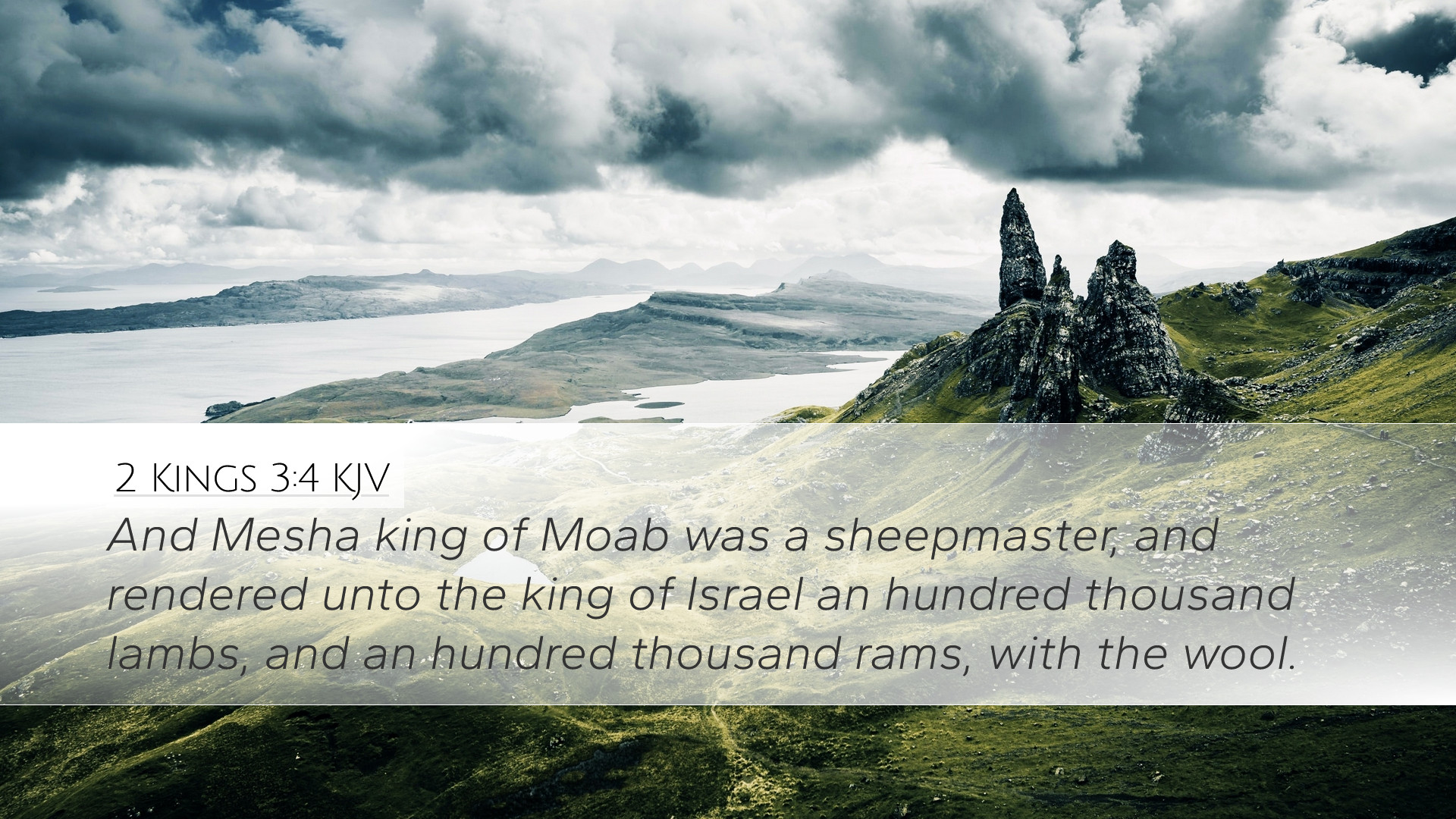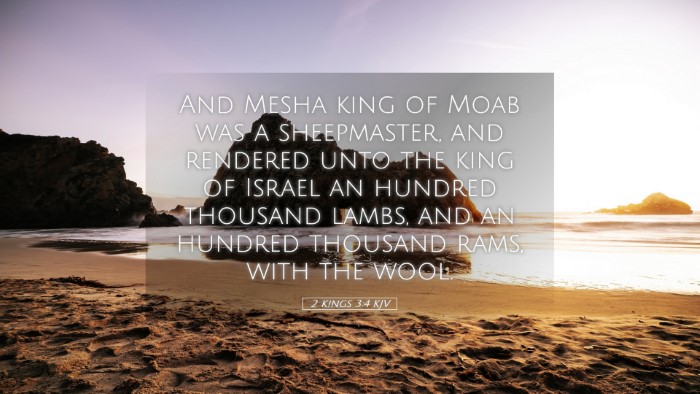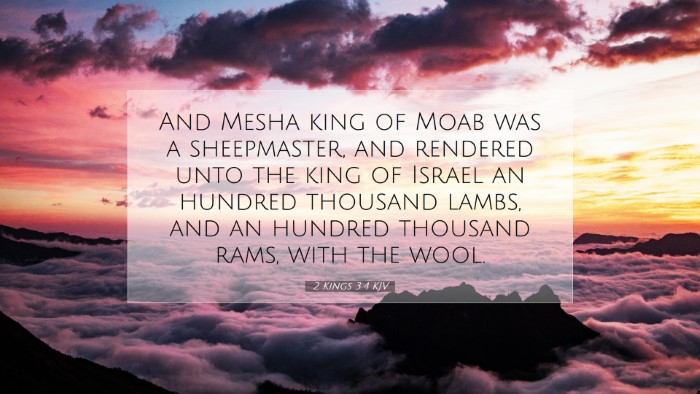Commentary on 2 Kings 3:4
Verse: "Now Mesha king of Moab was a sheepmaster, and rendered unto the king of Israel an hundred thousand lambs, and an hundred thousand rams, with the wool."
Historical Context
This verse is set in the context of the political and military tensions between Israel and Moab during the reign of King Jehoram of Israel. Historical records suggest that Mesha, the king of Moab, was a prominent figure during this period, known for his rebellion against Israelite rule.
Understanding the cultural background of both nations is essential to comprehending the significance of this tribute. Moab was known for its sheep and thus the tribute of lambs and rams indicates a vital economic interaction between the two kingdoms.
Interpretations from Public Domain Commentaries
Matthew Henry
Matthew Henry notes that the tribute paid by Mesha reflects the subjugation of Moab under Israelite rule. This extensive tribute was meant to appease the Israelite king and maintain peace; however, the mention of the specific numbers of lambs and rams also hints at a certain economic strength in Moab despite its vassal status.
He further emphasizes the idea of God's providence, suggesting that divine sovereignty plays a role in the rise and fall of kings and nations. This interaction between nations illustrates the interconnectedness of divine will and human politics.
Albert Barnes
Albert Barnes provides a pragmatic view of this verse, analyzing the significance of the tribute not only as a show of allegiance but as a crucial economic exchange. He points out that the tribute of “a hundred thousand lambs and rams” illustrates Moab’s wealth and resources, which would become pivotal in the eventual events of rebellion.
Barnes also provides insights into how this tribute might have been perceived by the Israelites, viewing it both as a symbol of control over Moab as well as a delicate situation that could easily tip into conflict, revealing the frailty of political alliances.
Adam Clarke
Adam Clarke expands on the narrative surrounding Mesha's tribute, providing a linguistic and cultural analysis of the terms used. He notes that this tribute involves not merely livestock but also the wool, which indicates an established agricultural economy in Moab.
Clarke also reflects on the theological implications of this passage, particularly in relation to the Israelite’s understanding of God’s favor. The tribute signifies not only a political gesture but also serves to highlight the spiritual state of Israel at this time under Jehoram’s reign.
Theological Reflections
This verse raises significant theological reflections related to obedience and rebellion. Mesha’s tribute can be seen as a sign of both submission and preparation for impending rebellion. The tribute plays a pivotal role in setting the stage for the conflict that follows, urging students of Scripture to consider the delicate balance of power influenced by divine providence and human decision-making.
Applications for Modern Readers
- Understanding Leadership: This passage invites readers to reflect on the nature of leadership—how it can thrive or falter depending on moral and spiritual integrity.
- The Consequences of Rebellion: Mesha’s tribute serves as a forewarning of the consequences of rebellion against established authority, encouraging reflections on modern governance and personal conduct.
- Divine Sovereignty in Human Affairs: The overarching theme of God’s sovereignty reminds believers that even in political struggles, God actively directs the course of history.
Conclusion
2 Kings 3:4 serves as a rich tapestry woven with political, economic, and spiritual threads that resonate throughout history. The insights drawn from commentaries encourage readers to not only understand the historical implications but also to engage in deeper theological reflection and practical applications for contemporary life.


